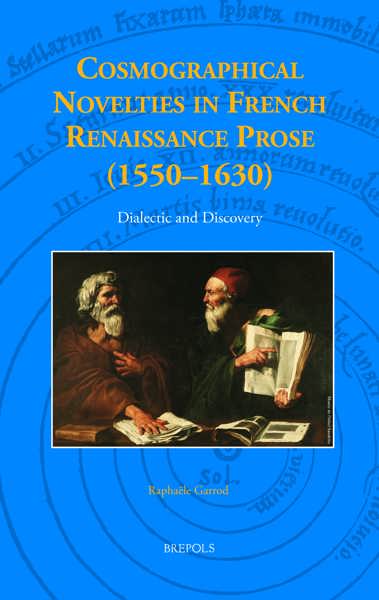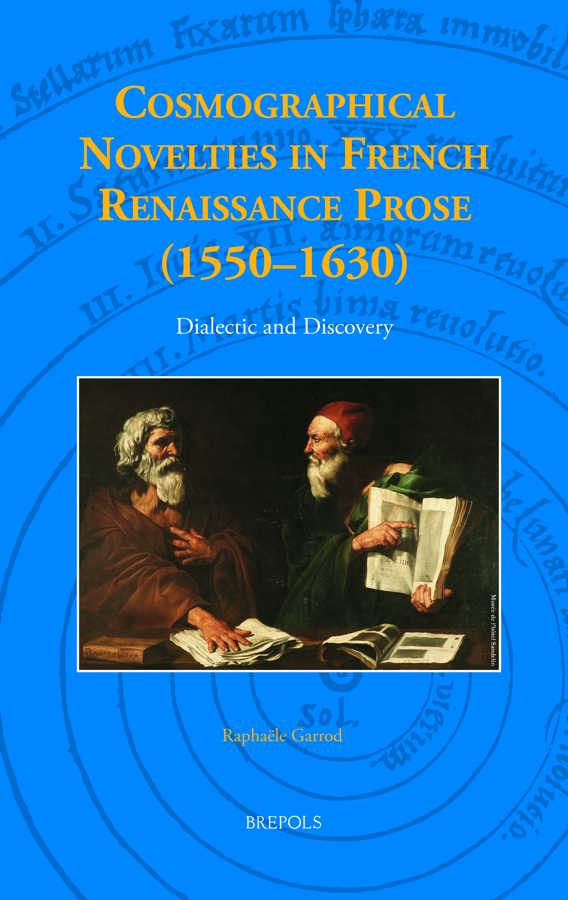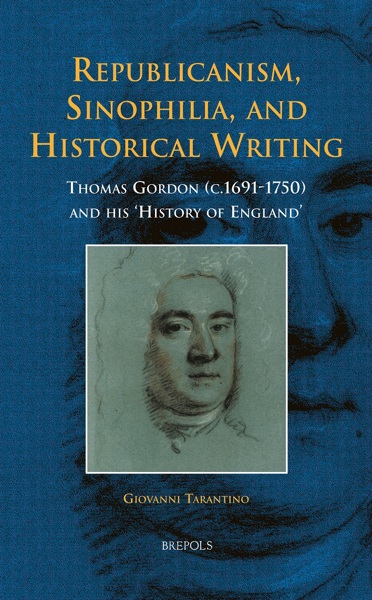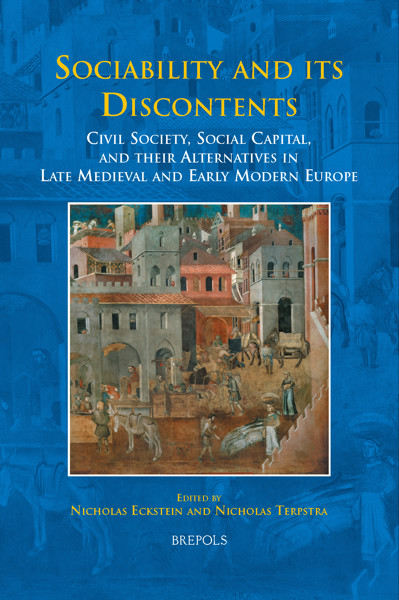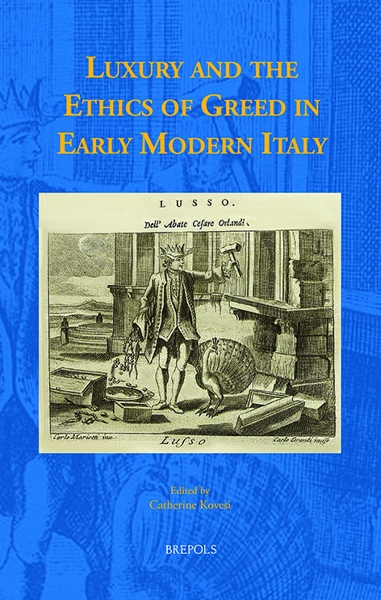
Cosmographical Novelties in French Renaissance Prose (1550–1630)
Dialectic and Discovery
Raphaële Garrod
- Pages: 389 p.
- Size:156 x 234 mm
- Illustrations:12 b/w, 7 tables b/w.
- Language(s):English, French, Latin
- Publication Year:2016
- € 120,00 EXCL. VAT RETAIL PRICE
- ISBN: 978-2-503-55045-9
- Hardback
- Available
- € 120,00 EXCL. VAT RETAIL PRICE
- ISBN: 978-2-503-55789-2
- E-book
- Available
An exploration of the contribution of dialectic (the art of arguing and reasoning), in its scholastic and humanist guises, to the debates surrounding novelties in cosmology and cosmography in early modern France.
“Raphaële Garrod accomplishes the difficult task of recasting the issues raised both by the practice of science and the practice of history on common matters relating to modality and objectivity, reopening the – dialectical – debate about the rhetorical and poetic invention of the world by scholarly endeavours. As such, this book does indeed “bring forth a valid meaning” (p.64).” (Simon Dumas Primbault, in Cromohs, 20, 2015, p. 137)
“This book makes an important contribution to the study of the reception of the scientific novelties of the early modern era (…). Ultimately, this is a book that opens up interesting perspectives on the early modern ‘rhetorical turn’, namely on the interplay between observational discoveries and dialectical invention, and on the latter’s role in attributing meaning to the former. It is a complex and well-argued effort that will be of interest to readers of intellectual history and history of science alike.” (Dario Tessicini, in the Journal of Northern Renaissance, 2017)
“This text provides a thoroughly researched history of dialectic and cosmography (…) The book is impressively erudite and it is hard to imagine a reader who won’t come away from its discussions better informed for their effort (…) since Garrod’s text is so impressively researched and conscientiously argued that even scholars working far afield from her detailed defense of the ongoing relevance of dialectic in the “New Science” will find much to appreciate here." (Timothy Duffy, in Renaissance Quarterly, 70/3, 2017, p. 1037-1039)
« (…) l’ouvrage déploie d’intéressantes pistes de recherche et de réflexions, à la croisée de l’histoire intellectuelle et de l’histoire des savoirs, sur les technologies littéraires qui ont construit l’existence discursive des nouveautés scientifiques. » (Oury Goldman, dans la Revue Dix-Septième Siècle, 282/1, 2019, p. 191)
“This impressive book explores how cosmological and cosmographical ‘novelties’ were explained and presented in early modern France—at a time when Tycho Brahe discovered new stars, Copernicus and Kepler observed comets, and Galileo invented the telescope, we can understand the epistemic ‘trouble’ it created.” (Véronique Duché, in Parergon, 38/1, 2021, p. 221)
Contemporary historiography holds that it was the practices and technologies underpinning both the Great Voyages and the ‘New Science’, as opposed to traditional book learning, which led to the major epistemic breakthroughs of early modernity. This study, however, returns to the importance of book-learning by exploring how cosmological and cosmographical ‘novelties’ were explained and presented in Renaissance texts, and discloses the ways in which the reports presented by sailors, astronomers, and scientists became not only credible but also deeply disturbing for scholars, preachers, and educated laymen in sixteenth- and seventeenth-century France.
It is argued here that dialectic — the art of argumentation and reasoning — played a crucial role in articulating and popularizing new learning about the cosmos by providing the argumentative toolkit needed to define, discard, and authorize novelties. The debates that shaped them were not confined to learned circles; rather, they reached a wider audience via early modern vernacular genres such as the essay.
Focusing both on major figures such as Montaigne or Descartes, as well as on now-forgotten popularizers such as Belleforest and Binet, this book describes the deployment of dialectic as a means of articulating and disseminating, but also of containing, the disturbance generated by cosmological and cosmographical novelties in Renaissance France, whether for the lay reader in Court or Parliament, for the parishioner at Church, or for the student in the classroom.
Introduction. Cosmographical Novelties: Unravelling the Dialectical Fabric of French Prose
Chapter 1. Dialectic and Natural Philosophy: An Early Modern Panorama
Part I. Cosmological Novelties: Natural–Theological, Sceptical, and Revolutionary Subversions
Chapter 2. Natural Theology and Cosmological Novelties: The Huguenot Encyclopaedia and the Jesuit Miscellany
Chapter 3. Cosmological Fictions: Sceptical and Revolutionary Uses of the Loci
Part II. Cosmographical Novelties: Inventing the New World and National Geographies
Chapter 4. Early Modern Cosmography: Definitions and Tensions in Contemporary Scholarship
Chapter 5. The Locus from Authority in Cosmography and Geography
Chapter 6. Loci in Cosmography and Geography: Probable Disciplines. Defining Novelties, Inventing National Geographies
Conclusion. Dialectical Invention: The Discursive Emergence of Novelties and Epistemic Change
Appendices
Bibliography
Index of Names
